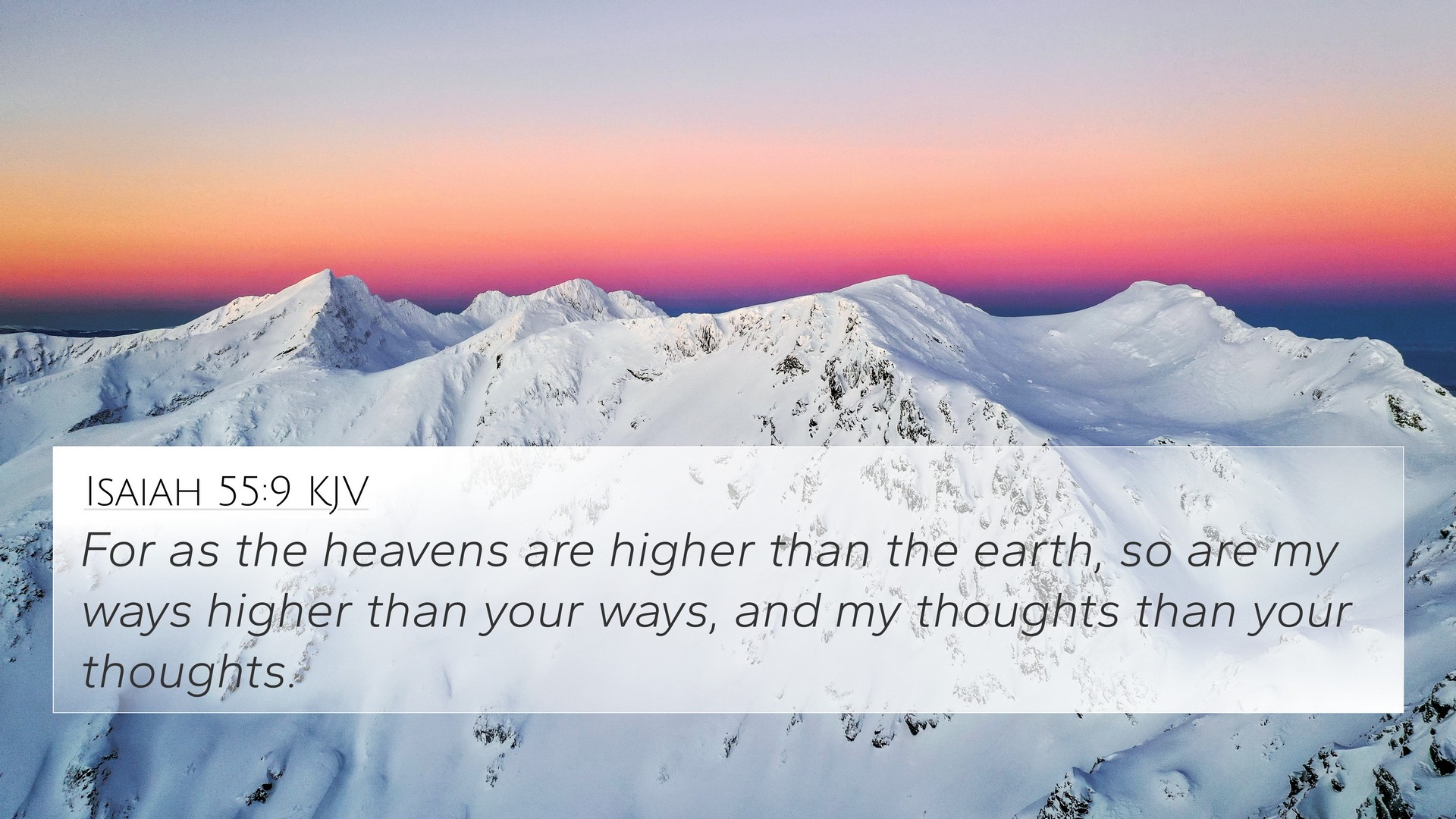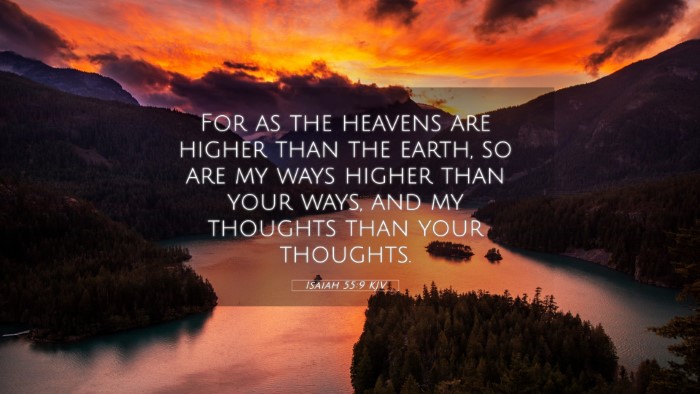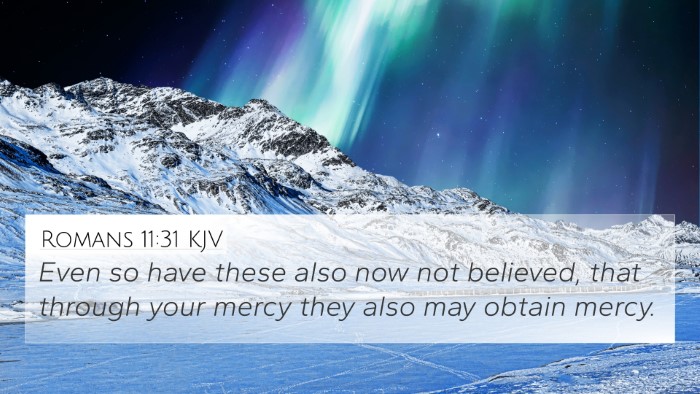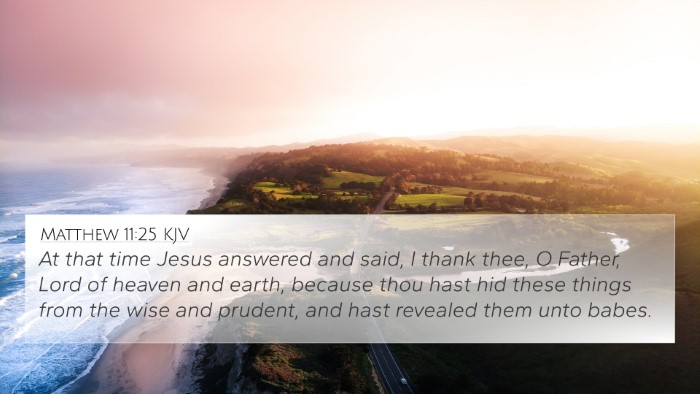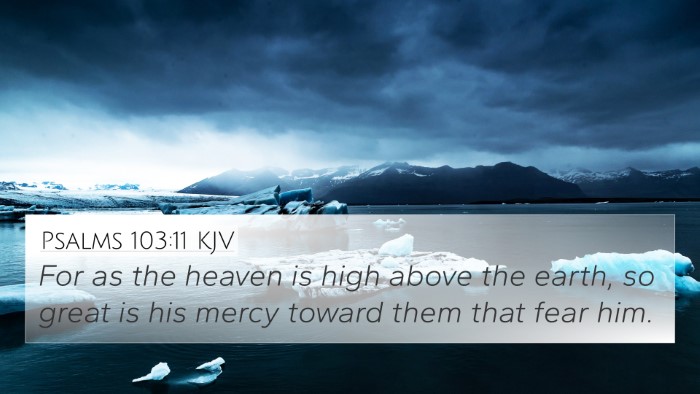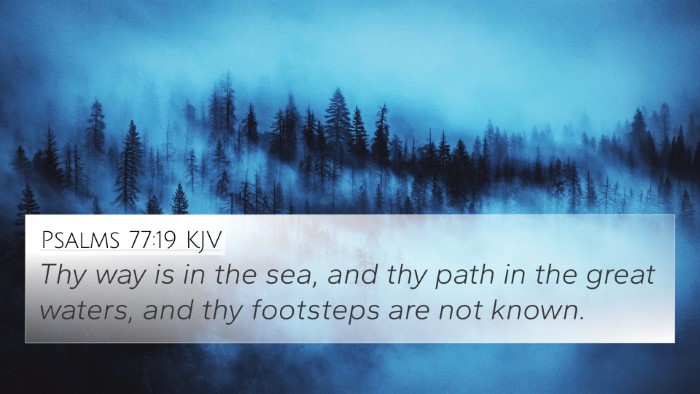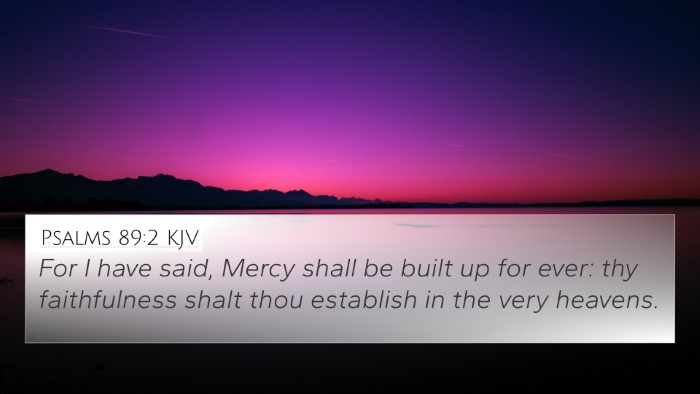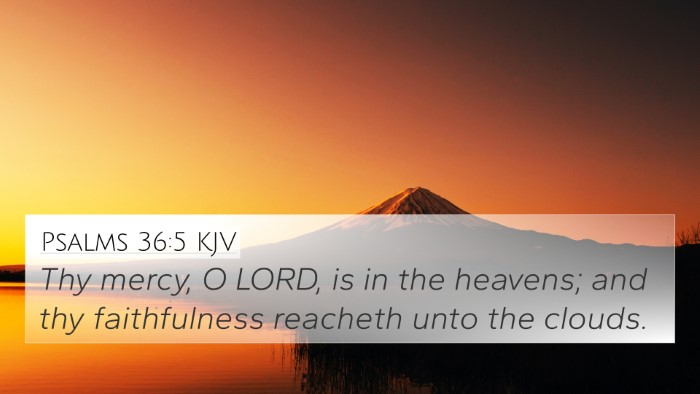Understanding Isaiah 55:9
Isaiah 55:9 states, "For as the heavens are higher than the earth, so are my ways higher than your ways, and my thoughts than your thoughts." This verse encapsulates a profound truth about the nature of God's wisdom and the limitations of human understanding. Below, we explore the insights from notable public domain commentaries and cross-references related to this powerful scripture.
Verse Meaning and Interpretation
Isaiah 55:9 emphasizes a fundamental distinction between the divine nature and humanity. The following insights from renowned commentators provide further clarity:
-
Matthew Henry:
Henry remarks that the vastness of the heavens compared to the earth highlights God's transcendence. It serves as a reminder that human reasoning is often inadequate to grasp divine purposes. This verse encourages believers to trust in God's wisdom, even when circumstances appear perplexing.
-
Albert Barnes:
Barnes notes that this verse indicates the great disparity between God's divine thoughts and human thoughts. He points out that just as the heavens are immeasurable, so are God's plans and the rationale behind them. Hence, believers are invited to recognize their dependence on God's insight and guidance.
-
Adam Clarke:
Clarke comments on the implications of this verse in the context of divine revelation. He argues that while humanity is often driven by limited understanding, God's intentions are rooted in infinite knowledge and wisdom. Thus, the verse serves as an assurance of God’s omniscience in every aspect of life.
Cross-References and Thematic Connections
Isaiah 55:9 has several related verses that echo its themes of divine wisdom and human limitations. These include:
- Psalms 103:11: "For as the heavens are high above the earth, so great is His mercy toward those who fear Him."
- Romans 11:33: "Oh, the depth of the riches of the wisdom and knowledge of God! How unsearchable His judgments, and His paths beyond tracing out!"
- Proverbs 3:5-6: "Trust in the Lord with all your heart and lean not on your own understanding; in all your ways submit to Him, and He will make your paths straight."
- Job 11:7-9: "Can you fathom the mysteries of God? Can you probe the limits of the Almighty? They are higher than the heavens above—what can you do? They are deeper than the depths below—what can you know?"
- 1 Corinthians 1:25: "For the foolishness of God is wiser than human wisdom, and the weakness of God is stronger than human strength."
- Isaiah 40:28: "Do you not know? Have you not heard? The Lord is the everlasting God, the Creator of the ends of the earth. He will not grow tired or weary, and His understanding no one can fathom."
- Isaiah 46:10: "I make known the end from the beginning, from ancient times, what is still to come. I say, 'My purpose will stand, and I will do all that I please.'
Connecting Themes Through Cross-Referencing
The interconnectedness of Scripture invites believers to delve deeper into understanding God's ways. By cross-referencing Isaiah 55:9 with related verses, we can see a thematic continuity:
- The Sovereignty of God: God's sovereignty is reflected in His ways and thoughts, showcased across multiple verses.
- The Limitations of Human Understanding: Many scriptures emphasize the limitations of human insight, urging trust in God’s plans.
- The Mercy and Grace of God: Verses that highlight God’s high thoughts also relate to His lovingkindness towards humanity.
Tools for Bible Cross-Referencing
Utilizing a cross-reference Bible study guide can enhance your understanding of these connections. Here are a few tools recommended for an effective cross-referencing Bible study:
- Bible Concordance
- Bible Cross-Reference Guide
- Bible Reference Resources
- Bible Chain References
Exploring Inter-Biblical Dialogue
Understanding Isaiah 55:9 encourages a broader examination of how various Biblical teachings converse with one another. For instance:
- Old and New Testament Parallels: Exploring themes like divine wisdom in both Testaments can deepen one’s insight.
- Connections between Prophets and Apostolic Teachings: Discovering how New Testament writers reflected upon Old Testament scriptures enhances comprehensibility.
- Thematic Studies: Engaging in a comparative study of related themes can unveil richer meanings within scripture.
Conclusion
Isaiah 55:9 serves as a profound reminder of God's infinite wisdom and the limits of human understanding. Through careful cross-referencing and thematic exploration, believers can build a robust understanding of biblical truths and their applications. This verse invites reflection on the nature of God and the assurance that His ways and thoughts are ultimately far superior to our own.
